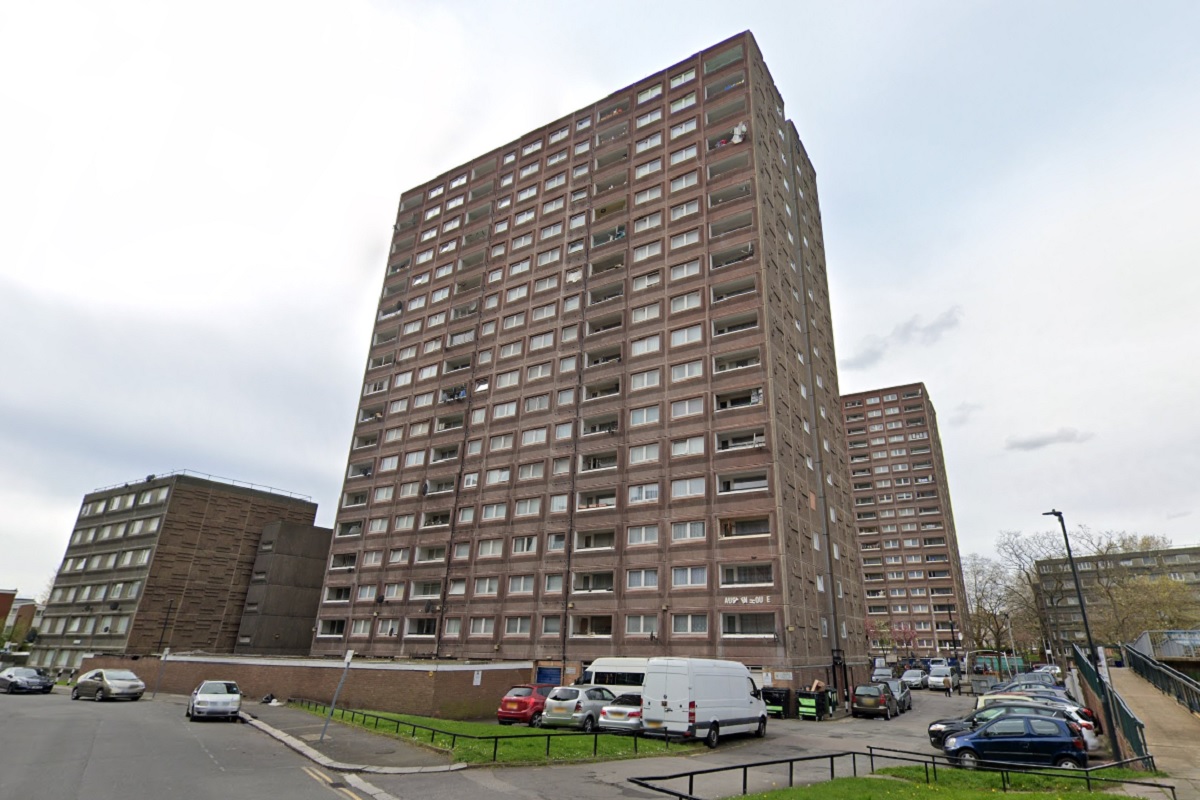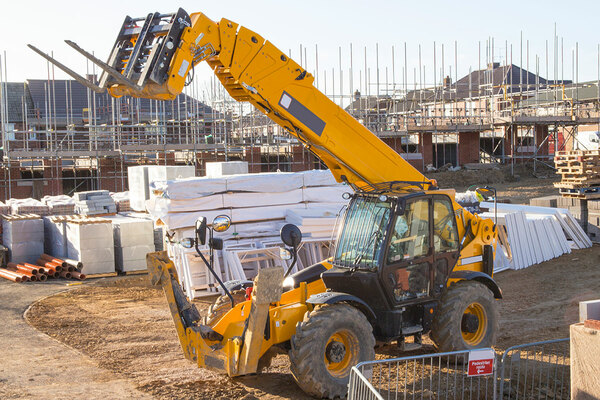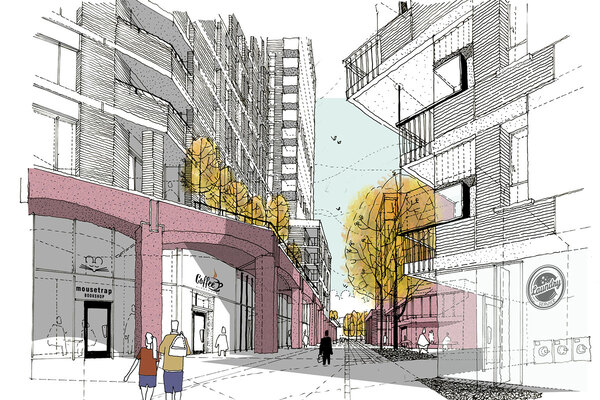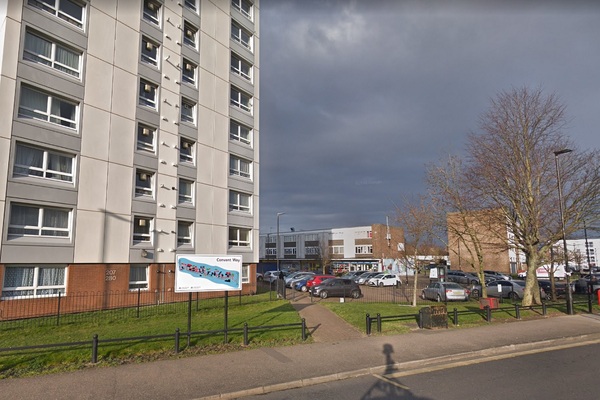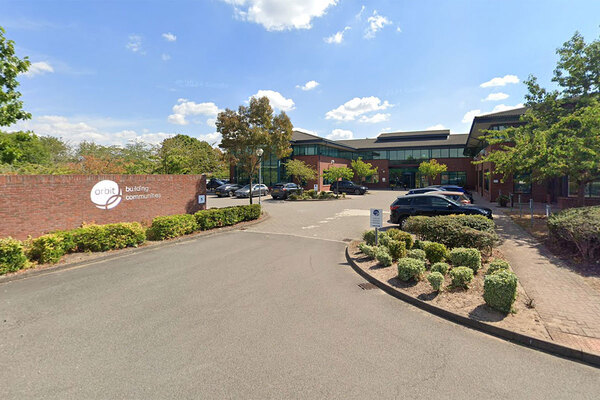You are viewing 1 of your 1 free articles
All London regeneration ballots passed since introduction
All 13 estate regeneration ballots carried out in London since they were introduced by Sadiq Khan have seen residents vote in favour of development, Inside Housing can reveal.
People living on five council estates and eight owned by housing associations have given their consent for schemes set to deliver a combined 12,000 new homes since July 2018.
Freedom of Information Act responses from London’s 33 local authorities also show that the average turnout for the votes was 81%, with 80% of residents indicating their support for regeneration on average.
In a letter blocking the mayor’s development plan last month, housing secretary Robert Jenrick told Mr Khan that the “onerous” requirement for ballots was “jeopardising housing delivery”.
London estate regeneration schemes involving the demolition of existing homes have been required to ballot residents in order to receive Greater London Authority (GLA) grant funding since July 2018.
Social tenants, resident leaseholders and freeholders, and temporary accommodation residents who have been on the housing needs register for a year or more have the right to a vote.
A spokesperson for the mayor said that he is “standing up for people living on estates by introducing mandatory ballots” and that the requirement “helps ensure that GLA funding only supports regeneration if residents have had a clear say on the plans and support the regeneration”.
Councils and housing associations were split on the prospect of ballots during consultation on the policy, with some social landlords warning that they could slow down or foil regeneration projects.
But Helen Evans, chair of the G15 group of large London housing associations and chief executive of Network Homes, told Inside Housing she has changed her view on ballots, having initially had “significant reservations”.
She said: “I was worried that ballots could be blocking major developments in the interest of a relatively small number of people who already have a home against the wishes of people without one.
“I can still see both sides of the argument, but since the ballots have come in what I’ve seen is the effort that has gone into winning ballots resulting in much greater transparency, engagement and honesty about what’s happening, and you’ve actually seen residents voting for change in way that has been quite uplifting.”
The largest estate to have held a ballot is the South Kilburn Estate owned by Brent Council, with 1,200 homes and 936 eligible voters.
Residents of the South Kilburn Estate voted 84% in favour of regeneration with a 72% turnout for the ballot, held between September and October last year.
The second largest, Cambridge Road Estate owned by Kingston Council, passed its ballot in late March.
The smallest, Bellamy Close and Byng Street in Tower Hamlets, whose 31 homes are owned by One Housing Group, voted in favour of development in December.
At least another eight regeneration ballots were previously planned for 2020 – including the large St Raphael’s Estate in Brent and the Carpenters Estate in Newham – while one is currently under way at Tower Hamlets Council’s Harriott, Apsley and Patterson houses.
A total of 33 regeneration projects have been awarded GLA grant funding since the ballot requirement was introduced.
Forty-four regeneration projects are going ahead in London without a ballot, mostly because they received planning permission or grant funding before the rules came into force and so are exempt.
Estate regeneration ballot results
| Name of estate | Council | Landlord | Number of existing homes | Homes planned | Turnout | Size of vote in favour |
|---|---|---|---|---|---|---|
| Westhorpe Gardens and Mills Grove Estate | Barnet | Metropolitan Thames Valley | 102 | 250 | 66% | 75% |
| Douglas Bader Park Estate | Barnet | Home Group | 271 | 660 | 91% | 75% |
| Lesnes Estate | Bexley | Peabody | 400 | 1,300 | 65% | 70% |
| South Kilburn Estate | Brent | Brent Council | 1,200 | 2,400 | 72% | 84% |
| Pike Close | Bromley | Riverside | 92 | 218 | 90% | 82% |
| West Kentish Town | Camden | Camden Council | 316 | 880 | 85% | 93% |
| High Lane Estate | Ealing | Ealing Council | 264 | 450 | 57% | 90% |
| Brookhill Estate | Greenwich | Hyde | 80 | 272 | 87% | 86% |
| Cambridge Road | Kingston | Kingston Council | 820 | 2,000 | 86% | 73% |
| Canterbury Close, Geoffrey Close and York Close | Lambeth | Riverside | 135 | 400 | 87% | 67% |
| Achilles Street | Lewisham | Lewisham Council | 87 | 450 | 92% | 73% |
| Teviot Estate | Tower Hamlets | Poplar Harca | 535 | 2,500 | 81% | 86% |
| Bellamy and Byng Estate | Tower Hamlets | One Housing Group | 31 | 150 | 100% | 84% |
